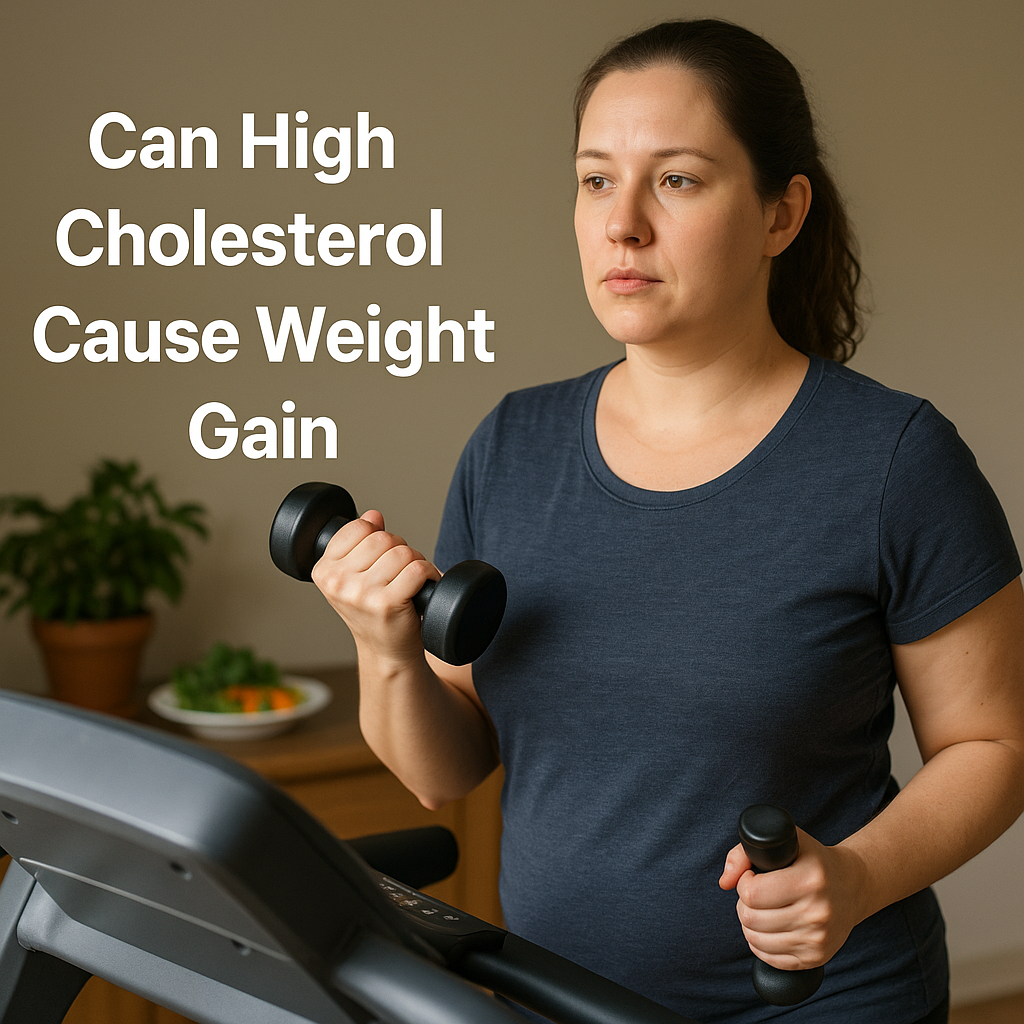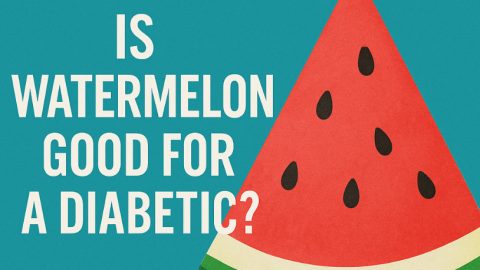If you’ve been struggling with your weight and recently discovered that your cholesterol levels are high, you might be wondering whether the two are connected. Many people assume that high cholesterol automatically leads to weight gain or that being overweight always causes cholesterol problems. But the truth is more nuanced than that. While these two health issues often go hand in hand, the relationship between them is more about shared causes than a direct cause-and-effect link.
In this article, we’ll explore the fascinating connection between high cholesterol and weight gain. You’ll learn how cholesterol works in your body, what really influences your weight, and most importantly, how lifestyle changes can help you manage both effectively. So, if you’ve ever asked yourself, “Can high cholesterol cause weight gain?” — this is the complete, science-backed answer you’ve been looking for.
Understanding Cholesterol and Its Role in Your Body

Before diving into the connection between cholesterol and weight, it’s important to understand what cholesterol actually is. Contrary to popular belief, cholesterol itself isn’t entirely bad. In fact, your body needs it to function properly. Cholesterol is a waxy, fat-like substance found in every cell. It’s essential for producing hormones like estrogen and testosterone, building cell membranes, and helping your body make vitamin D.
Your liver naturally produces all the cholesterol you need, but additional cholesterol comes from animal-based foods like meat, eggs, and dairy. Problems arise when cholesterol levels get too high — particularly the “bad” type known as LDL (low-density lipoprotein). When LDL builds up in your arteries, it can restrict blood flow and increase your risk of heart disease.
The other key player is HDL (high-density lipoprotein), often called the “good” cholesterol because it helps remove excess LDL from your bloodstream. Keeping these two types in balance is crucial for good heart health.
The Truth About Weight Gain and Cholesterol Levels
They Often Coexist, But One Doesn’t Necessarily Cause the Other
One of the biggest misconceptions is that high cholesterol directly causes weight gain. In reality, it’s not quite that simple. Cholesterol itself doesn’t contain calories, so it doesn’t contribute to fat storage or energy balance the way carbohydrates or fats do. However, both high cholesterol and weight gain often result from similar lifestyle factors — such as poor diet, lack of exercise, and chronic stress.
Think of them as two branches growing from the same tree. A diet rich in saturated fats, processed foods, and sugar can lead to both higher cholesterol levels and an expanding waistline. Likewise, a sedentary lifestyle makes it easier to gain weight and harder to control LDL cholesterol.
How Metabolism Links High Cholesterol and Weight Gain
Your metabolism plays a major role in both cholesterol regulation and body weight. When your metabolism slows down, your body burns fewer calories at rest, making it easier to gain fat. This same sluggish metabolic rate can also affect how your body processes fats, leading to elevated LDL and lower HDL cholesterol.
Insulin Resistance and the Cholesterol Connection
Insulin resistance — a condition where your cells stop responding properly to insulin — often develops in people who are overweight. When this happens, your liver begins to produce more cholesterol and triglycerides. Over time, this combination contributes to both weight gain (especially around the abdomen) and higher cholesterol levels. In short, it’s not that cholesterol causes you to gain weight, but rather that the same metabolic imbalance drives both problems.
The Role of Diet: What You Eat Matters Most
Saturated Fats and Processed Foods
A diet high in saturated and trans fats can significantly raise your LDL cholesterol. These fats are commonly found in fried foods, pastries, processed meats, and full-fat dairy products. Over time, consuming these foods doesn’t just affect your cholesterol — it also packs on the pounds. Your body stores the excess calories as fat, particularly around your abdomen, where it’s most dangerous for heart health.
Refined Carbohydrates and Sugary Drinks
While most people associate cholesterol with fat intake, sugar is another hidden culprit. Diets high in refined carbs and added sugars can increase triglyceride levels — a type of fat in your blood that’s closely linked to heart disease and weight gain. Sweetened beverages, white bread, and desserts can spike your blood sugar, trigger insulin resistance, and eventually raise cholesterol levels.
Healthy Fats and Fiber: The Good Guys
The good news? You can fight both high cholesterol and weight gain with smart food choices. Foods rich in omega-3 fatty acids (like salmon, flaxseeds, and walnuts) can raise HDL and lower triglycerides. Soluble fiber, found in oats, apples, and beans, binds with cholesterol in your digestive system and helps flush it out of your body. A diet built around whole grains, vegetables, lean protein, and healthy fats is the ultimate solution for controlling both weight and cholesterol.
Hormones: The Hidden Link Between Cholesterol and Weight
Your hormones influence everything from appetite to fat storage, and they’re deeply connected to cholesterol balance. For example, when estrogen levels drop during menopause, women often experience both higher LDL cholesterol and weight gain. Similarly, thyroid disorders can disrupt metabolism and cholesterol production, leading to fatigue, sluggish metabolism, and unwanted weight gain.
Cortisol and Stress
Stress is another often-overlooked factor. Chronic stress triggers the release of cortisol, the “stress hormone,” which encourages your body to store fat — especially around your abdomen. High cortisol levels can also affect your lipid profile, leading to increased LDL and triglycerides. So, managing stress isn’t just good for your mind — it’s a vital part of keeping your heart and body healthy.
The Role of Genetics in Cholesterol and Weight
Some people are simply more prone to high cholesterol due to their genes. This condition, called familial hypercholesterolemia, causes your body to produce too much LDL regardless of your diet or weight. Similarly, genetics can influence your body’s natural metabolism, fat storage patterns, and appetite hormones — all of which impact weight.
While you can’t change your DNA, lifestyle still matters. Even those with a strong genetic predisposition to high cholesterol can benefit from regular exercise and a heart-healthy diet.
Exercise: The Key to Managing Both Weight and Cholesterol
Physical activity is one of the most powerful tools for tackling both high cholesterol and weight gain. Regular exercise raises HDL, lowers LDL, and helps you burn fat — a triple win for your health.
How Much Exercise Do You Need?
Experts recommend at least 150 minutes of moderate-intensity aerobic exercise per week, such as brisk walking, cycling, or swimming. Strength training two or more times per week can further boost your metabolism and muscle mass, helping you maintain a healthy weight.
Why Exercise Works
When you move your body, your muscles use up fatty acids and glucose for energy, which lowers triglyceride levels in your blood. Exercise also increases your cells’ sensitivity to insulin, helping regulate blood sugar and cholesterol levels more effectively.
Sleep and Recovery: The Overlooked Connection
You might not realize it, but lack of sleep can sabotage both your cholesterol and your waistline. Poor sleep interferes with hormones like ghrelin and leptin, which control hunger and satiety. As a result, you may feel hungrier and crave more high-fat, sugary foods.
In addition, inadequate rest can elevate cortisol and inflammatory markers, both of which can worsen cholesterol levels and promote fat storage. For optimal health, aim for 7–9 hours of quality sleep each night and maintain a consistent sleep routine.
Alcohol, Smoking, and Cholesterol Weight Dynamics
Alcohol in Moderation
Small amounts of alcohol — particularly red wine — may raise HDL cholesterol. However, excessive drinking adds empty calories and contributes to liver fat buildup, leading to weight gain and higher triglycerides. Moderation is key: stick to one drink per day for women and two for men.
Smoking’s Double Impact
Smoking lowers your HDL cholesterol and damages your arteries, making cholesterol deposits more dangerous. It also interferes with metabolism, making it harder to maintain a healthy weight. Quitting smoking can dramatically improve your lipid profile and energy levels, helping you stay more active.
Medical Conditions That Tie Cholesterol to Weight Gain
Certain health conditions can make managing cholesterol and weight more difficult. These include:
- Hypothyroidism, which slows your metabolism and raises cholesterol
- Polycystic ovary syndrome (PCOS), which affects hormone balance and fat storage
- Type 2 diabetes, which increases triglycerides and insulin resistance
If you have any of these conditions, it’s important to work with your healthcare provider on a personalized management plan.
Managing Both Cholesterol and Weight: Practical Lifestyle Tips
1. Eat Mindfully
Pay attention to what and how much you eat. Replace fried foods with grilled or baked options. Choose whole grains over white bread and pasta. Load your plate with colorful vegetables — they’re rich in fiber and antioxidants that help lower cholesterol naturally.
2. Move Every Day
You don’t need to become a gym addict. Even a 30-minute walk after meals can improve cholesterol levels and boost calorie burn. Find activities you enjoy — dancing, yoga, hiking — and make them part of your routine.
3. Stay Hydrated
Drinking enough water helps your metabolism function smoothly and supports digestion. Sometimes, thirst can be mistaken for hunger, leading to unnecessary snacking.
4. Manage Stress
Try meditation, journaling, or deep-breathing exercises to reduce stress and cortisol levels. A calm mind leads to better food choices and healthier body chemistry.
5. Limit Processed Foods
Packaged snacks, sugary cereals, and fast food can raise your LDL and trigger weight gain. Opt for homemade meals using whole, natural ingredients instead.
Can Weight Loss Improve Cholesterol? Absolutely!
Here’s the good news: losing even a modest amount of weight can significantly improve your cholesterol profile. Studies show that shedding just 5–10% of your body weight can reduce LDL and triglycerides while increasing HDL.
When you lose fat — especially visceral fat around your abdomen — your liver becomes more efficient at processing lipids. This leads to better cholesterol balance and reduced heart disease risk.
When to See a Doctor
If lifestyle changes don’t seem to lower your cholesterol or weight, consult a healthcare professional. They may recommend cholesterol-lowering medications like statins or investigate other underlying causes. Regular blood tests, ideally every 1–2 years, can help you track your progress and make adjustments as needed.
Conclusion
So, can high cholesterol cause weight gain? Not directly — but they’re closely intertwined. Both conditions often stem from similar lifestyle patterns involving diet, inactivity, stress, and sleep. By making consistent, sustainable changes to your daily habits, you can improve your cholesterol, manage your weight, and protect your heart health all at once.
Remember, the goal isn’t perfection. It’s progress. Small choices — like choosing a salad over fries, walking instead of driving short distances, or going to bed an hour earlier — can have a lasting impact on your body’s balance.
A healthy heart and a healthy weight go hand in hand, and understanding their connection is the first step toward achieving both.
FAQs About High Cholesterol and Weight Gain
1. Does high cholesterol directly make you gain weight?
Not directly. High cholesterol itself doesn’t contain calories or fat that can make you gain weight. However, both high cholesterol and weight gain often result from similar causes — like poor diet, inactivity, and metabolic changes. So while one doesn’t cause the other, they frequently appear together.
2. Can losing weight help lower cholesterol levels?
Yes, even modest weight loss can significantly improve your cholesterol profile. Losing just 5–10% of your body weight can lower LDL (“bad” cholesterol), raise HDL (“good” cholesterol), and reduce triglycerides. The key is to maintain steady, healthy habits rather than rapid, unsustainable dieting.
3. What are the best foods to eat for both weight and cholesterol control?
Focus on whole, nutrient-dense foods. Great options include oats, beans, fruits, vegetables, salmon, flaxseeds, olive oil, and nuts. Avoid processed foods, fried snacks, and sugary drinks. A Mediterranean-style diet works wonders for both heart and waistline health.
4. Can high cholesterol slow down your metabolism?
Not exactly, but it often occurs alongside conditions that affect metabolism, such as insulin resistance or thyroid issues. A sluggish metabolism can make it harder to burn fat, which in turn may worsen cholesterol levels — creating a frustrating cycle.
5. How long does it take to see improvement in cholesterol after lifestyle changes?
You can start noticing measurable changes within 6–12 weeks of consistent healthy habits. Regular exercise, a balanced diet, and reduced saturated fat intake can show significant results when combined with regular cholesterol monitoring.
6. Are cholesterol medications linked to weight gain?
Some people experience slight weight gain while taking certain cholesterol medications like statins, but this isn’t common. The benefits of these medications in reducing heart risk generally far outweigh any mild side effects. Always talk to your doctor before making changes to your prescription.
Medical Disclaimer: This article is for informational purposes only and is not a substitute for professional medical advice. Always consult your doctor or a qualified healthcare provider before making changes to your diet, exercise, or treatment plan.



